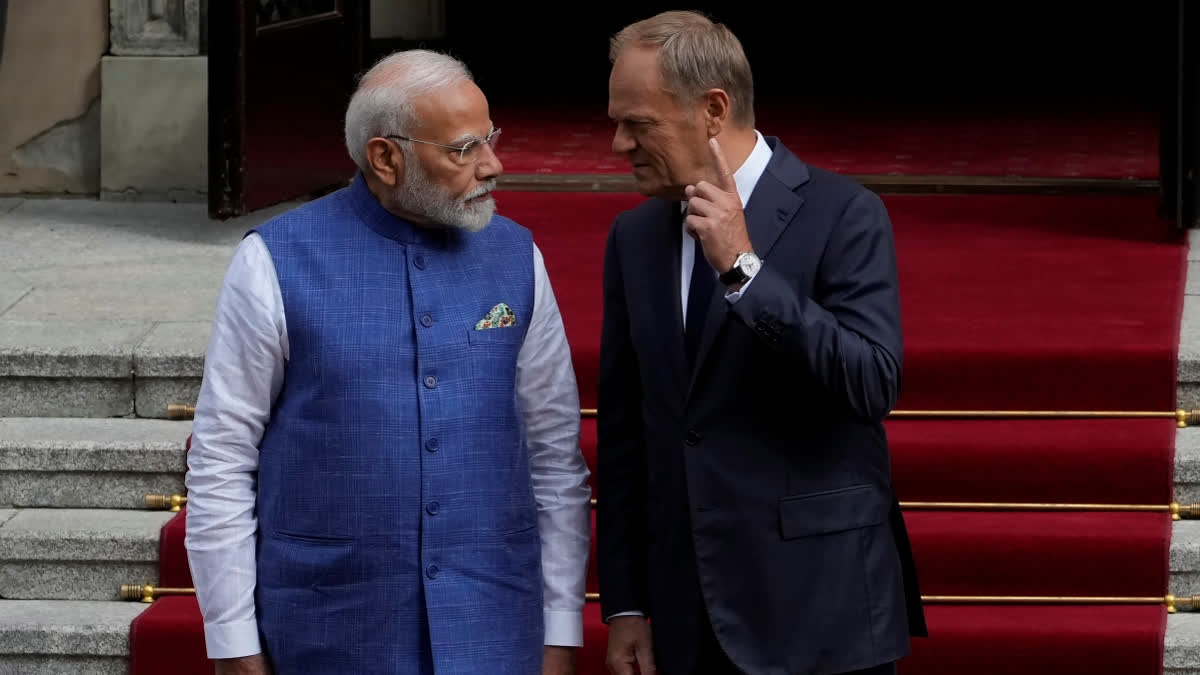New Delhi: Building on the consensus reached by the Prime Ministers of India and Poland during talks held on Tuesday, in Warsaw and recognising the momentum in bilateral cooperation created by the establishment of the Strategic Partnership, the two sides agreed to formulate and execute a five-year Action Plan that will guide bilateral collaboration in the years 2024-2028 across various areas as priorities:
Political Dialogue and Security Cooperation:The two sides will maintain regular contacts with foreign ministers and use bilateral and multilateral fora for these interactions. Both sides will consider supporting each other's aspirations on a case-by-case basis to contribute to multilateral cooperation in the spirit of the United Nations Charter. The two sides will ensure the holding of an annual political dialogue at the level of deputy minister in charge of foreign relations. Both sides will encourage relevant institutions to hold regular consultations on security and defence cooperation to promote contact between defence industries, modernise military equipment, and address outstanding issues. The two sides decided that the next round of the Joint Working Group for defence cooperation would take place in 2024.
Trade and Investment:Recognizing opportunities in high-tech, agriculture, agritech, food tech, energy, climate, green technologies, infrastructure, smart cities, defence, healthcare, pharmaceuticals, and mining, the two sides will explore further cooperation in these sectors during the next Joint Commission for Economic Cooperation (JCEC) meeting scheduled for the end of 2024. The two sides will strive to organise meetings of JCEC at least twice every five years, with the possibility of more frequent meetings, if necessary. Both countries will work towards achieving balanced bilateral trade and addressing all issues to facilitate smooth trade and investment. Both sides will enhance cooperation in economic security by focusing on increasing supply chain resilience and mitigating risks associated with trade dependencies.
Climate, Energy, Mining, Science and Technology: According to the Ministry of External Affairs, the two sides will expand their cooperation in sustainable and environmentally friendly technological solutions for the circular economy and waste-water management. Acknowledging their historical reliance on domestic supplies for energy security, both sides will work together on advancing cleaner energy approaches and exploring cooperation in Clean Coal Technologies to minimize environmental impact.Recognizing the crucial role of innovation and the growing importance of critical minerals, the two sides will collaborate on advanced mining systems, high-tech machinery, pioneering safety standards, and increase exchanges and cooperation in mining-related industries. Both sides agreed to work on concluding a cooperation agreement to promote the safe, sustainable, and secure use of space and commercial space ecosystems. They also agreed to promote human and robotic exploration. Poland recognizes India’s ambition to join the International Energy Agency.
Transport and Connectivity:The two sides will explore developing cooperation in the field of transport infrastructure. Both sides have decided to work to enhance connectivity between their countries and respective regions by discussing and pursuing further expansion of flight connections.
